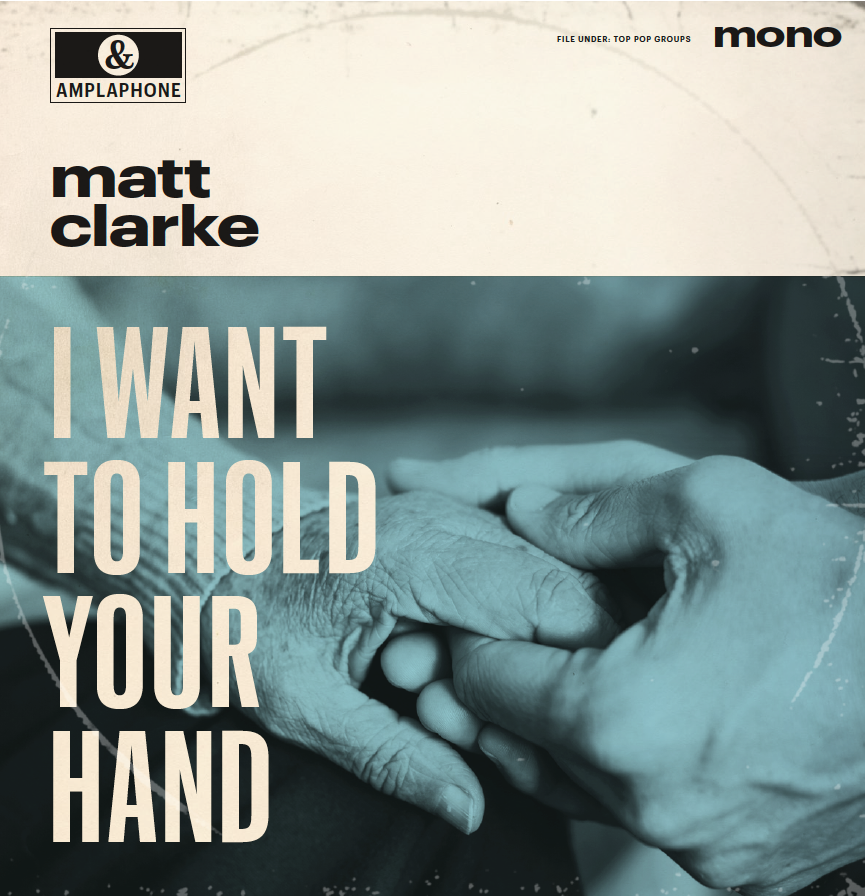I WANT TO HOLD YOUR HAND by Matt Clarke
It never ceases to amaze me how a song’s meaning can change from one moment to the next. Cohen’s “Hallelujah,” for example, is a completely different song to me now than when I first heard it as a teenager. Or in Springsteen’s “The River,” when he asks if a dream is a lie (or something worse) if it doesn’t come true—that’s a cool-sounding line when you’re angsty and trying to impress a girl, but after you’ve actually had a couple of dreams crushed, it’s like a punch in the gut.
It’s the same for my own music as well. I’m never really sure where a song comes from. A chord change just seems to appear out of the rubble of a mistake, or a chorus sneaks up on me like a sneeze. From there I find myself scrambling to suss out what the hell it’s about—like reading tea leaves or something. That journey of discovery, to understand what a piece of music is about, is what I still find most exciting and rewarding about songwriting.
Spanning my twenties and early thirties, my grandfather made his descent through Alzheimer’s to his inevitable end. After he died, my dad asked me to play a song at the funeral that I had written years earlier, called “Familiar.” In it I had imagined what it might be like to watch your life slowly disappear.
I had written the song as a way to come to terms with a tragedy of the human experience, to attempt to find some kind of insight into it. My dad had always liked the song—I think it helped him see the whole experi- ence from a different perspective as well.
So I agreed to play “Familiar,” and someone else requested we play a cover of the Beatles’ “I Want to Hold Your Hand.” As grandpa lost his ability to hold anything resembling a conversation, and eventually his ability to speak much at all, he never lost his habit of reaching for the hand of anyone who sat near him. It was a habit that got him punched in the face a few times by other random patients at the nursing home. But like a child’s impulse, it was a way to find connection and also a sense of comfort and safety.
So the funeral comes along and my wife, Leila, and I sing “Familiar.” It’s a bit of a sad bastard song, but what better place for a sad bastard song than a funeral? But as we were singing it, the song, which in the past had felt cathartic, this time offered me little comfort. His death had changed my relationship to that song. It didn’t hold the same meaning.
Then we launch into the Beatles’ classic—a joy- fully simple tune. And to my surprise, before the first chorus hits, everyone in the place, including Leila and me, are in tears. There wasn’t a person in that room who hadn’t held old Bud’s hand on countless occasions. Everyone joined in between sobs, and the ’60s pop hit took on the air of a southern hymnal.
I cannot imagine when Lennon and McCartney were writing that song that they considered for even a fraction of a second that it could be about an elderly Alzheimer’s patient grasping for his last straws of human connection. But on that spring afternoon in a Calgary funeral home, that’s exactly what it was about.
Matt Clarke is a singer-songwriter, actor, producer, and writer. Since Convos with My 2-Year-Old went viral on YouTube, he’s been busy writing, acting, and producing comedy for TV and any other medium that will have him.

